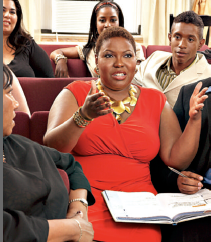
A real estate investor we met at an industry event had brought my friend and me into the deal. The agreement was that my friend would use her superior credit rating to secure a mortgage, while the investor and I would each contribute $30,000 toward the purchase down payment and the monthly mortgage. My credit rating was stellar, so my portion came from a home equity line of credit and a bank loan. Once I received the funds, I eagerly signed the deal. Trouble was, I moved ahead without fully understanding the complexities of the contract, and worse, I neglected to have my attorney review it. A newbie in real estate investing back then, I figured that with the housing market skyrocketing by as much as 300 percent in some areas of the U.S., this deal couldn’t fail. Or could it?
Once the bank pulled out, things went south fast. It only took a year for our start-up capital to dry up. I was completely broke, deep in debt and facing foreclosure on the land. To compound the shame I felt over not being able to pay my monthly portion of the mortgage, my business partner sued me, forcing me further into debt to defend myself. Although I had already relinquished my ownership of the property to her, she pressed for a cash settlement as well. I eventually prevailed when the court dismissed her claim, but the whole experience was sobering.
Four years later, the powerful lessons gleaned from that land deal are still reverberating. I’ve learned, for example, to deal with creditors immediately and to get my fiscal priorities in order by methodically paying down debt and saving for emergencies. Most important, I’ve become more proactive in planning my financial future. That’s why earlier this year I asked my husband, Douglas, to take a course with me called Financial Peace University. Taught by financial guru Dave Ramsey (daveramsey.com), the 13-week course aims to help you gain control of your financial life so you can stop worrying about money and begin your journey to financial peace. (See the “Need Help?” sidebar on page 90 for information about similar programs.) Our group met for two hours each week at the Mighty Sons of God Fellowship Church in Paterson, New Jersey. We’d watch the lesson on DVD, then have a group discussion. Slowly, a behavioral shift occurred. I realized that even though I understood the principles and applications of wealth building, I had never really been the driver of my own financial life. Now I think through decisions with clarity and peace, instead of feeling hurried or pressured. My husband and I are also relearning the basics of budgeting, developing a spending plan, negotiating with creditors and investing for the future. “Winning with money is 80 percent behavior and 20 percent knowledge,” Ramsey explains. “Our approach works because it teaches people how to change their behavior and make the right decisions through common-sense principles.”
The bottom line: You can gain mastery of your finances without feeling overwhelmed. To get started, follow these six tips recommended by Ramsey, personal finance expert Jacquette M. Timmons and certified financial planner Cheryl Creuzot:
1. Account for every dollar.
I’ve always paid my bills, even if it meant not having anything left over. But this mind-set had to change. Instead of paying 99 percent of my income to creditors, I now track spending and prioritize my bills using a budget. Necessities like food, housing, utilities and transportation costs are paid first, followed by debt obligations. “The biggest mistake people make with their money is they don’t have a plan and they wake up halfway through the month with nothing in their bank account and wonder where their money went,” says Ramsey. Sit down before each month begins and create a written spending plan. That way you’ll always know where your money is going.
2. Save $1,000 in an emergency fund.
Twenty-four percent of Americans don’t have rainy day savings or money readily available to cover unexpected expenses, according to bankrate.com. My husband and I always maintained an emergency fund, but living paycheck to paycheck forced us to cash out what little we had saved. Dave Ramsey advised our class to sock away $1,000 immediately for short-term emergencies like replacing car tires. We reached our savings goal within three months by depositing all extra money from my husband’s seasonal coaching gigs, additional monthly savings and gifts from parents into a regular savings account. We have since exceeded the $1,000 goal and are now prepared for life’s surprises. You can get there, too. “Look at it this way,” says Timmons, president and CEO of Sterling Investment Management, Inc., in New York City. “Saving $2.74 a day equals $1,000 in a year. We are really dismissive about a dollar, but if we think it will grow to $1,000, then what seems small is significant.”
3. Implement a payoff plan.
With five-figure debt from my real estate deal gone wrong, my family and I place squarely in the “typical” American household category, which averages $91,000 in debt, according to the U.S. Federal Reserve. To try to eliminate our debt quickly, we pay as much as we can manage to our creditors each month. By contrast, Financial Peace University teaches the debt snowball method—paying off the smallest balance first, say, a $200 medical bill, while paying the minimum amount on the remaining debts. Once the smallest obligation is paid off, add the $200 to the minimum payment on the next largest debt and so on. “When you take the smallest debt and knock it out first, you’ll be encouraged by small successes,” observes Creuzot, founder of Wealth Development Strategies in Houston, Texas.
4. Negotiate directly with creditors.
If you have bills that are currently being managed by collection agencies, do not pay anyone to negotiate on your behalf. “These companies ‘manage’ your debt by taking a monthly payment from you and distributing the money among your creditors, with whom they’ve often worked out lower payments and lower interest,” explains Ramsey. “They can help you get better interest rates and lower payments, but your credit will be trashed.” That’s why you should always negotiate for yourself. Here’s how I did it: One of our business line credit cards had a balance of $14,000. I asked the settlement attorney, “Who owns this debt?” The original creditor, he replied. I offered to settle the debt for $2,500. He said, “No one would accept that; it’s too low.” I reminded him that, by law, he was required to take my offer to his client. When there was no response from the settlement attorney, I called the original creditor. “Didn’t you get our counteroffer of $4,000?” the client representative asked me. I said, “I’ll accept your counteroffer if: (1) Payment can be made over the next three months, and (2) my credit report will be updated to reflect the debt as Paid as Agreed.” The creditor accepted the terms. Empower yourself by asking questions, speaking to a decision maker, and getting the terms in writing before you pay a dime.
5. Hire an A-team.
Never blindly trust that those you are doing business with have your best interests at heart. Most business transactions are complex, and it’s important to fully understand any fine print prior to entering an agreement. Always bring your own lawyers and financial planners to the table, and trust your gut: If something seems shady, it most likely is. “It’s important to hire a competent, experienced independent team of advisers to help you thoroughly understand the transaction and the potential future challenges that may arise,” notes Creuzot.
6. Include something for yourself.
While working toward your goals, don’t forget to do something for yourself. For our family, this means starting to fix up our 1950’s bungalow, one room at a time. For others, it might mean taking a dream vacation annually. It’s also important to budget some money for regular entertainment—the movies, a dinner out, drinks with coworkers. Spending on small pleasures can help bring you the type of balance that keeps you from becoming an overspender. “Focus less on the dollar amount and more on what feels like a treat and gives you a sense of joy,” Timmons says. Make a plan, stick to it, and reap the benefits.
Good luck!





